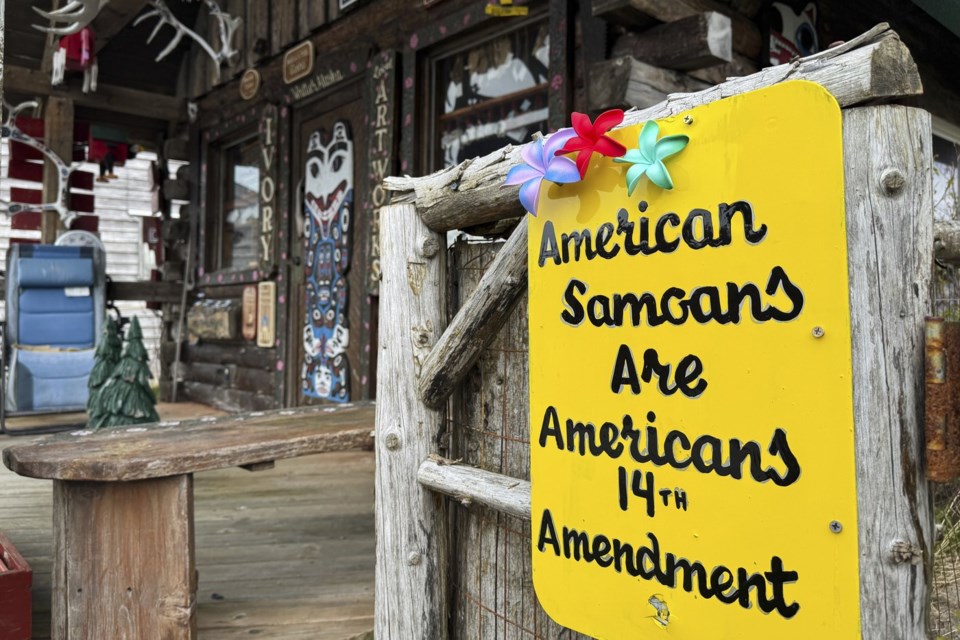ANCHORAGE, Alaska (AP) — Ten Alaska residents pleaded not guilty Thursday to voter misconduct or other charges in cases that have renewed attention on the complex citizenship status of people born in the U.S. territory of American Samoa.
Those facing charges — most of them related to one another — were born in American Samoa but live in the isolated Alaska community of Whittier, about 60 miles (96 kilometers) south of Anchorage. The state contends they falsely claimed U.S. citizenship when registering or attempting to vote. An attorney representing the defendants says many of them are citizens.
American Samoa is the only U.S. territory where residents are not automatically granted citizenship by being born on American soil, as the 14th Amendment to the Constitution dictates. Instead, they are considered U.S. nationals. American Samoans can serve in the military, obtain U.S. passports and vote in elections in American Samoa. But they cannot hold public office in the U.S. or participate in most U.S. elections.
A grand jury this week returned indictments with felony and misdemeanor counts, almost a year after Alaska State Troopers descended on Whittier to deliver court summonses. Some of the defendants were in court Thursday afternoon in Anchorage, while others attended virtually.
The case is related to that of Tupe Smith, who was arrested shortly after winning election to a regional school board in 2023 and who has been charged separately. Smith, born in American Samoa, has asserted she marked a box claiming to be a U.S. citizen at the instruction of election workers because there was no way to identify herself as a U.S. national, according to court records.
The state has said she falsely and deliberately claimed citizenship. Prosecutors pointed to the language on the voter application forms she filled out in 2020 and 2022, which explicitly said that if the applicant was not at least 18 years old and a U.S. citizen, “do not complete this form, as you are not eligible to vote.”
Smith's case is before the state Court of Appeals. Attorneys for the state have argued that the question of citizenship for American Samoans “is not before this court and the voter misconduct statute at issue here is not and cannot be the solution to this difficult problem.”
The 10 defendants in the separate case include Smith's husband, Michael Pese; his mother, who has cancer; seven other relatives; and one man who grew up in the same village in American Samoa as Michael Pese.
Matt DiTullio, an assistant public defender representing the 10, told a judge Thursday that most of them are U.S. citizens — information he said he has shared with prosecutors.
Jenna Gruenstein, an attorney with the state Office of Special Prosecutions, pushed back, saying it was her understanding that the state had asked for evidence to back up DiTullio's argument but that the state has yet to receive that.
Neil Weare, an attorney for Smith, in an interview noted her appeal is pending as the other cases proceed. Weare is the co-founder of the Right to Democracy Project, an advocacy group for people from U.S. territories.
The Pacific Community of Alaska has urged Alaska's attorney general not to pursue the matter, saying even officials in Whittier and at the state level have been confused about whether American Samoans are eligible to vote and have provided people with at times incorrect information.
The group also said the state did not perform its due diligence in determining citizenship status before pursuing charges.
___
Associated Press writer Becky Bohrer contributed from Juneau.
Mark Thiessen, The Associated Press



